Indigenous Governance Database
Intergovernmental Relations
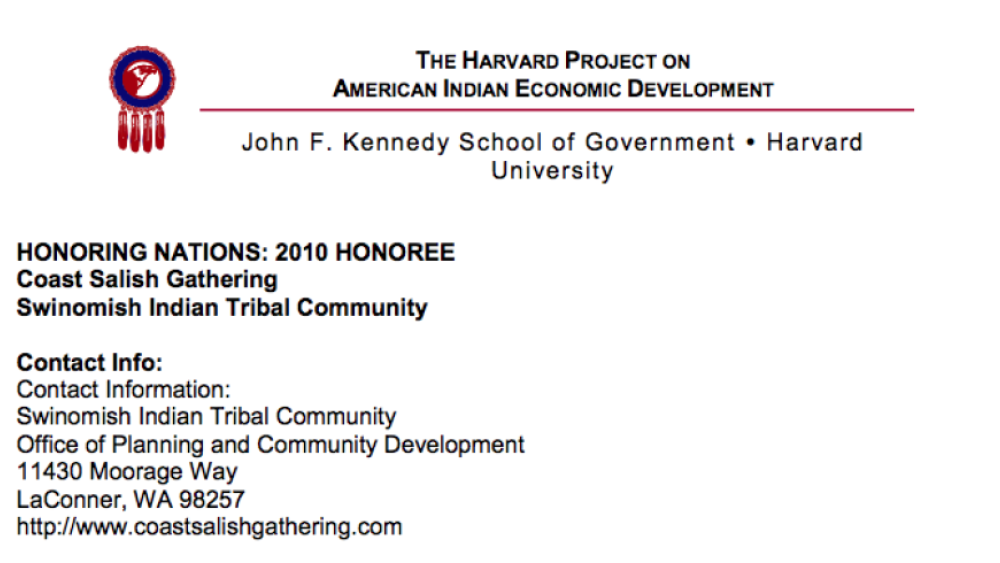
Coast Salish Gathering
Ecosystems in many parts of North America are under severe stress. Pollution, the overuse of natural resources, and habitat destruction threaten local flora and fauna. Conservation attempts often fall short because they target one species of site within an ecosystem. The Coast Salish Gathering…
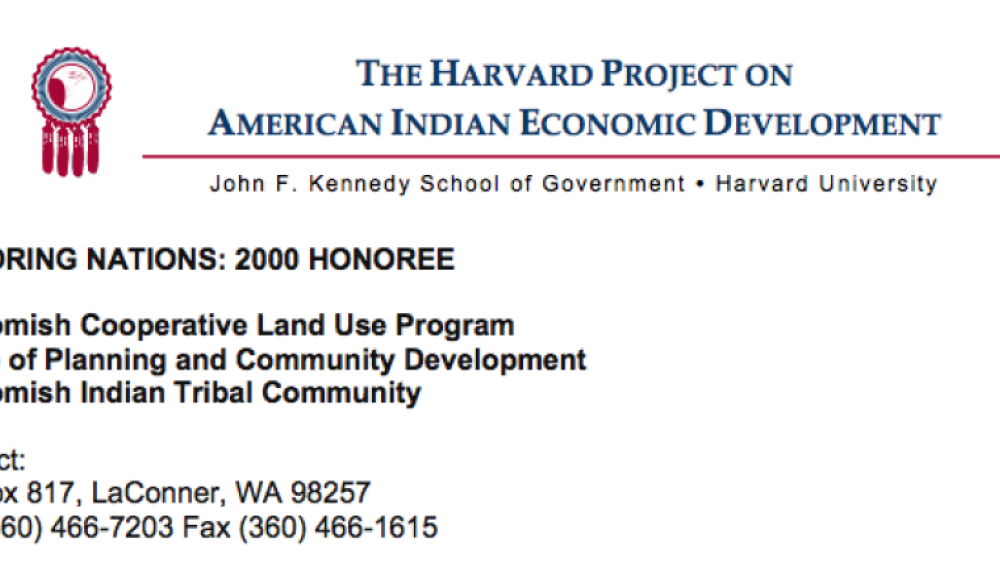
Swinomish Cooperative Land Use Program
Based on a memorandum of agreement between the Tribe and Skagit County, the Swinomish Cooperative Land Use Program provides a framework for conducting permitting activities within the boundaries of the "checkerboarded" reservation and offers a forum for resolving potential conflicts. The process,…
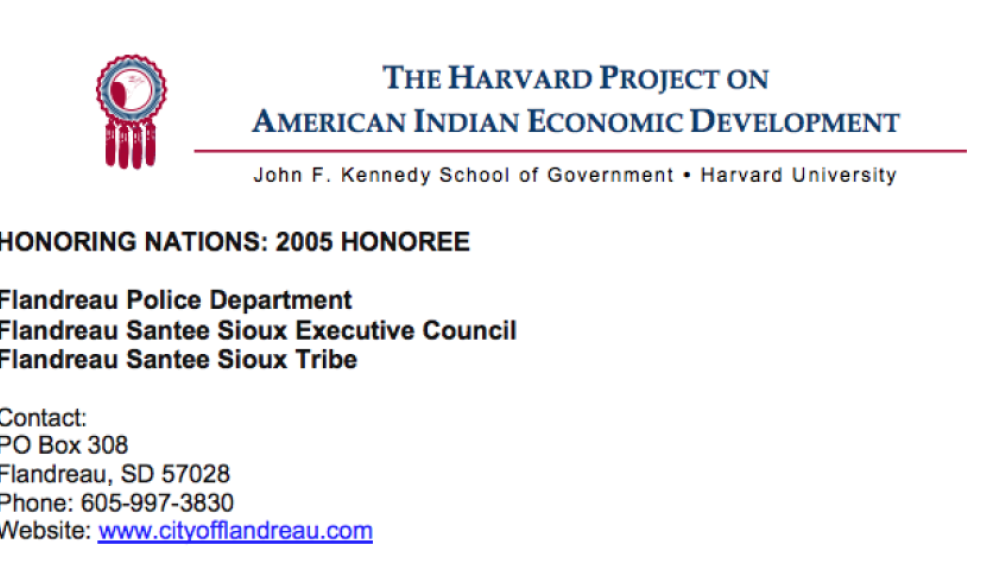
Flandreau Police Department
The Flandreau Santee Sioux Tribe’s lands are situated within Moody County and the City of Flandreau, South Dakota. This location presents the Nation with a particular challenge: How do you provide adequate and culturally sensitive public safety and law enforcement for your citizens in mixed…
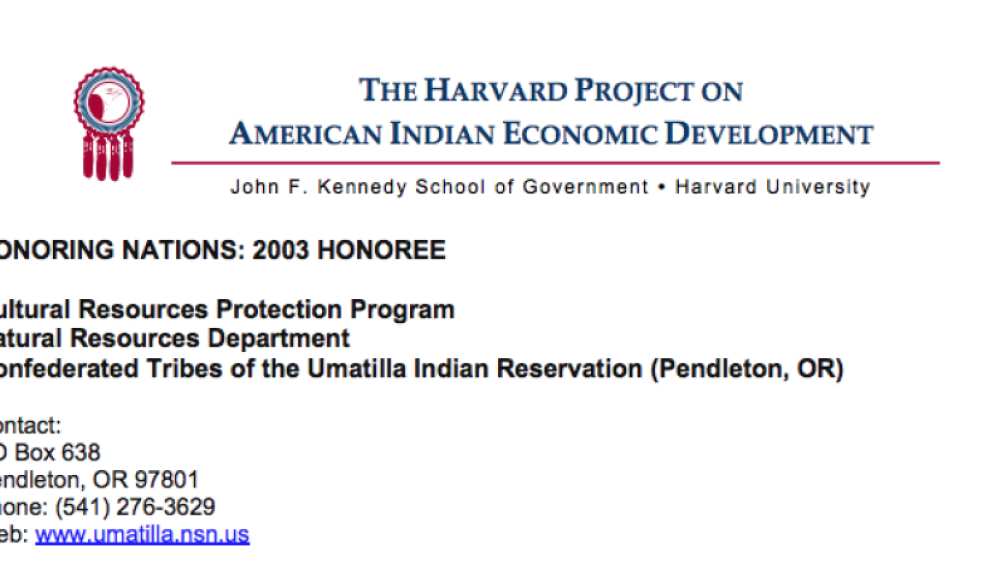
Umatilla Cultural Resources Protection Program
Frustrated by how tribal cultural resources were managed on tribal, federal, state, and private lands, the Tribes developed their own cultural resources protection program. The 15-year-old program is a leader in educating non-Indian agencies about pertinent laws and treaties, strengthening cultural…
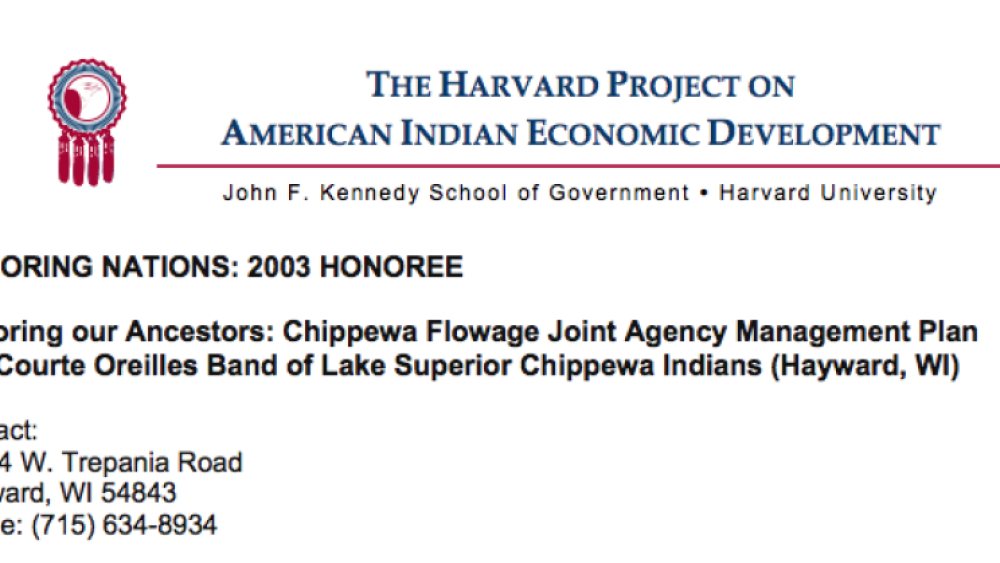
The Chippewa Flowage Joint Agency Management Plan
The Joint Agency Management Plan brings together three governments — the Lac Courte Oreilles Band, the State of Wisconsin, and the US Department of Agriculture Forest Service — to co-manage the Chippewa Flowage, a 15,300-acre reservoir created in 1923 that inundated a tribal village. Taking into…
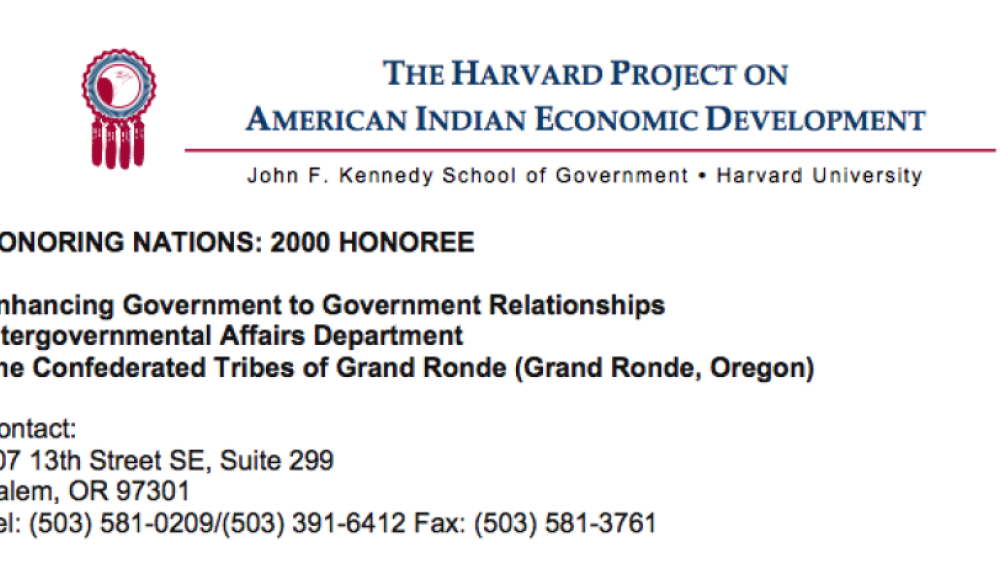
Enhancing Government-to-Government Relationships (Grand Ronde)
The Intergovernmental Affairs Department has achieved positive intergovernmental relationships with federal, state, and local governments by pursuing a five-pronged strategy of communication, education, cooperation, contributions, and presence. Since the Department’s creation, the Tribe has raised…
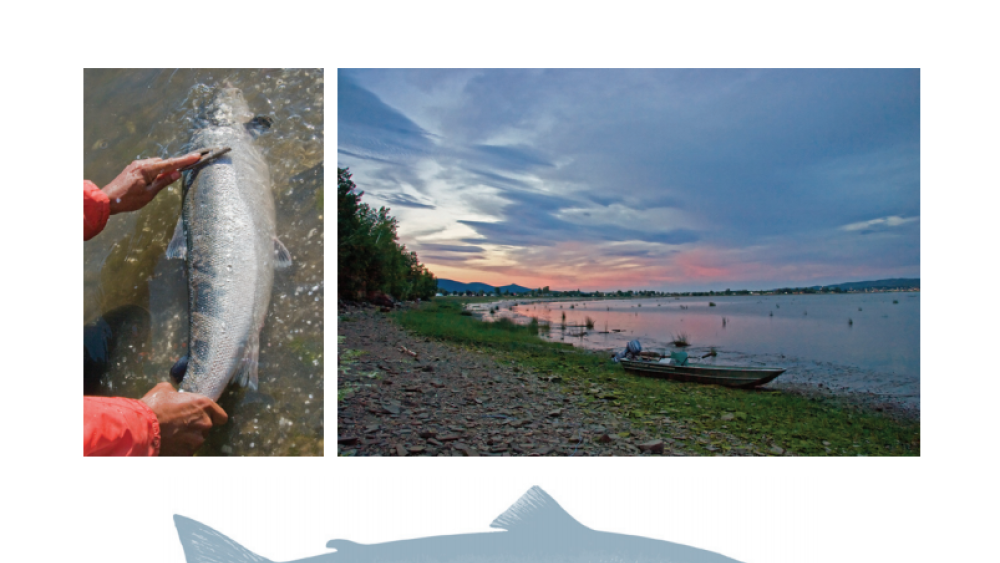
Making First Nation Law: The Listuguj Mi'gmaq Fishery
This is a case study that explores Listuguj Mi'gmaq law, an assertion and manifestation of the nation's right to fish and to govern its people, lands, and waters in its own ways. It discusses the genesis, application, and effects of the law and how a First Nation not only reclaimed their inherent…
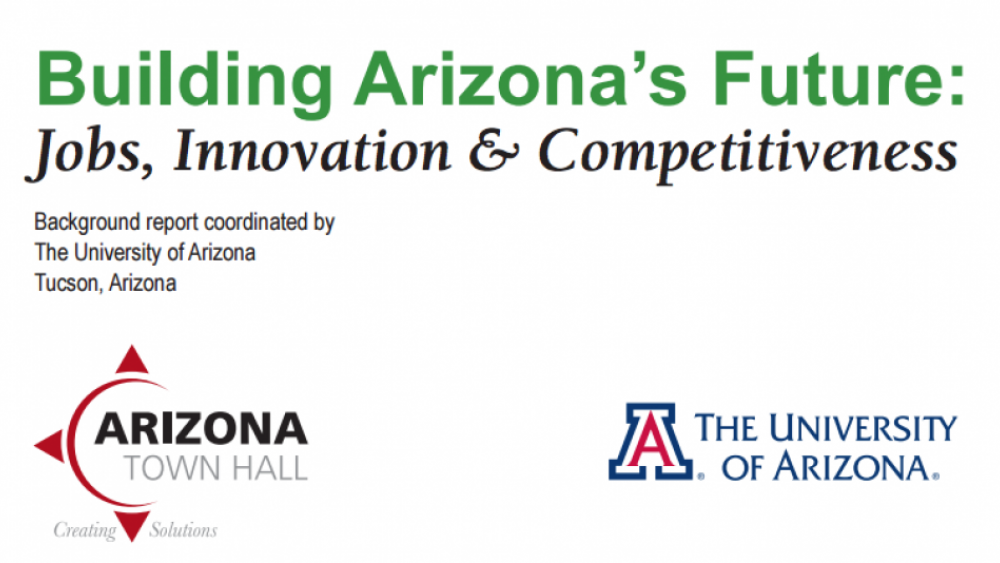
Native Nations and Arizona's Economy
American Indians are disproportionately represented among the low-income residents of the state of Arizona. Across the United States—including in Arizona—reservation economies are growing at a fast pace but low starting points for growth mean that it will take years for American Indian…
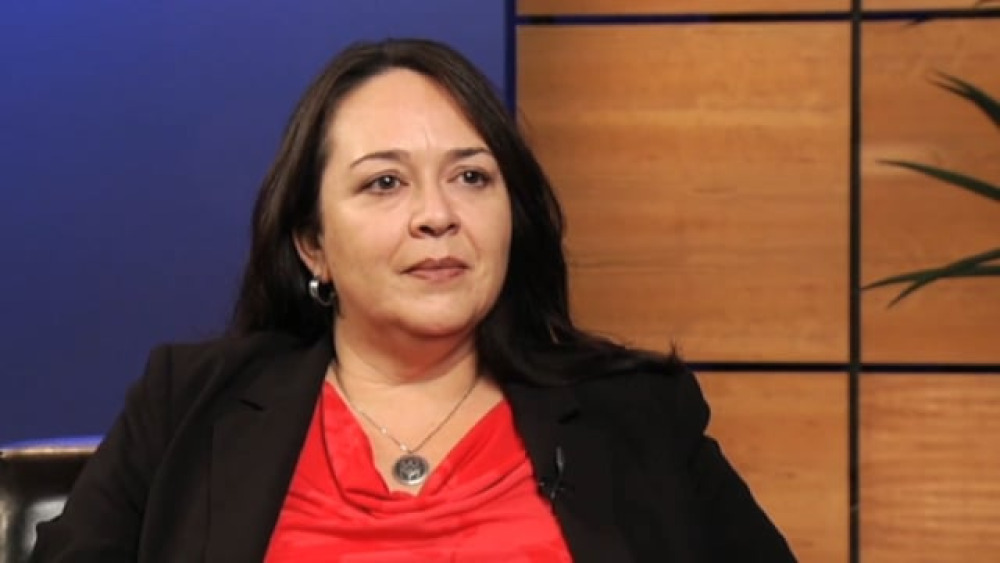
Devon Lomayesva: Making Constitution Reform and Tribal Law Work
Devon Lomayesva, a citizen of the Iipay Nation of Santa Ysabel in California, offers her perspectives on asserting tribal law in a P.L. 280 state. The Iipay Nation of Santa Ysabel underwent a constitutional reform process, and Devon shares her experiences with and perspectives of that process. Her…
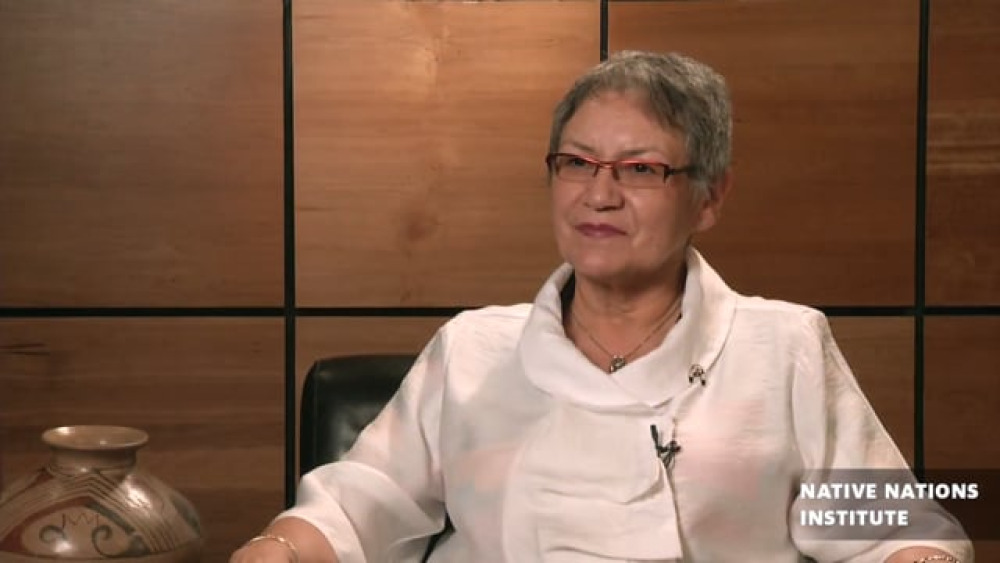
Sophie Pierre: Governance the Ktunaxa Nation Way
Sophie Pierre is a respected native leader that has been at the forefront of building key components and infrastructure for modern self-governance in the Ktunaxa Nation. Her tenure as Chief Commission for the BC Treaty Commission appointed by governments of Canada and British Columbia and the First…

Good Native Governance Breakout 1: Cultural and Natural Resources Protection
UCLA School of Law "Good Native Governance" conference presenters, panelists and participants Reginald Pagaling, Marcos Guerrero, and Marshall McKay discuss their experience with cultural preservation and cooperation with the local and state governements. Reginald addresses the areas of concerns…
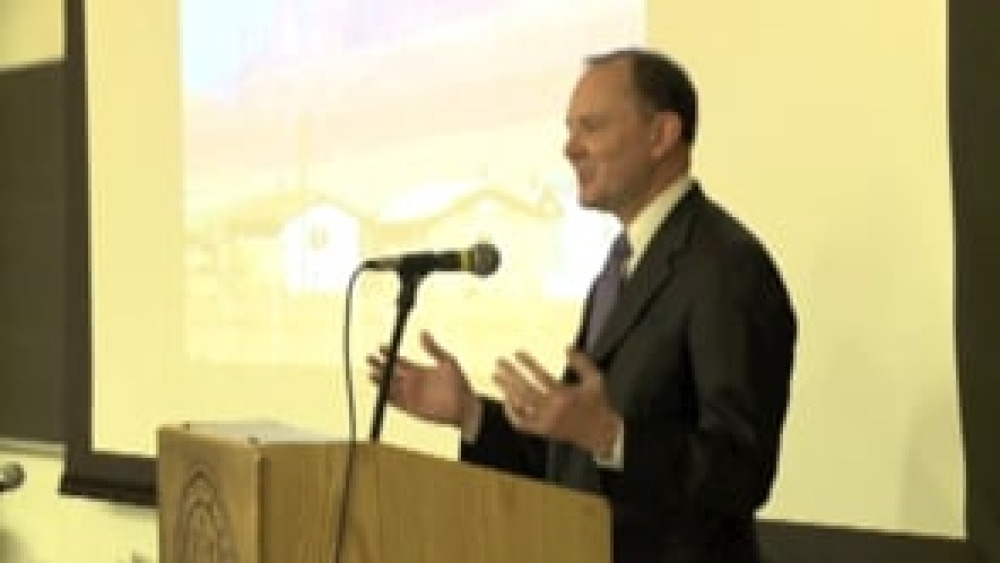
From the Good Native Governance: Innovative Research in Law, Education, and Economic Development Conference
Assistant Secretary Kevin Washburn provided a snapshot of Native nations engaging in self-governance reinforcing the notion that "almost anything the federal government can do, tribes can do better" through good governance.
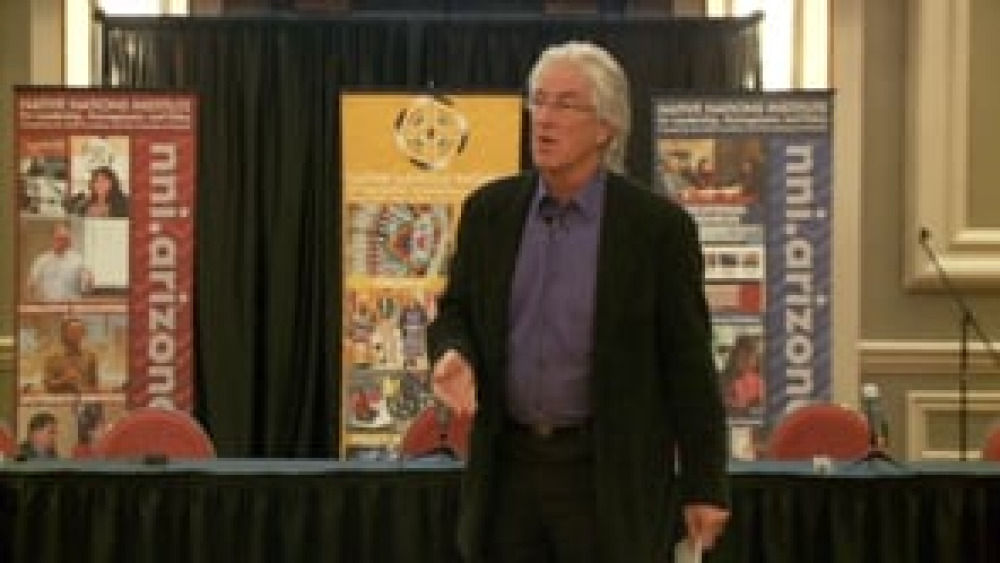
Robert Hershey: Dispelling Stereotypes about the Federal Government's Role in Native Nation Constitutional Reform
Robert Hershey, Professor of Law and American Indian Studies at The University of Arizona, dispels some longstanding stereotypes about what the federal government can and will do should a Native nation decide to amend its constitution to remove the Secretary of Interior approval clause or else make…
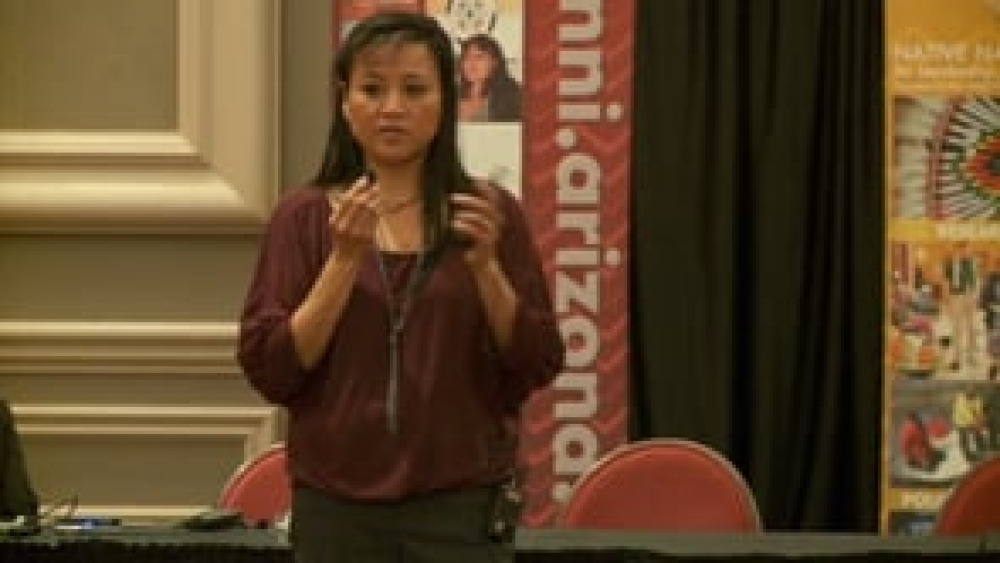
Jennifer Porter: The Kootenai Tribe: Strengthening the People's Voice in Government Through Constitutional Change
Jennifer Porter, former chairwoman and current vice-chairwoman of the Kootenai Tribe of Idaho, discusses how her nation moved to amend it constitution to change its basis of political representation, how the U.S. Secretary of Interior and the Bureau of Indian Affairs (BIA) tried to block the move,…
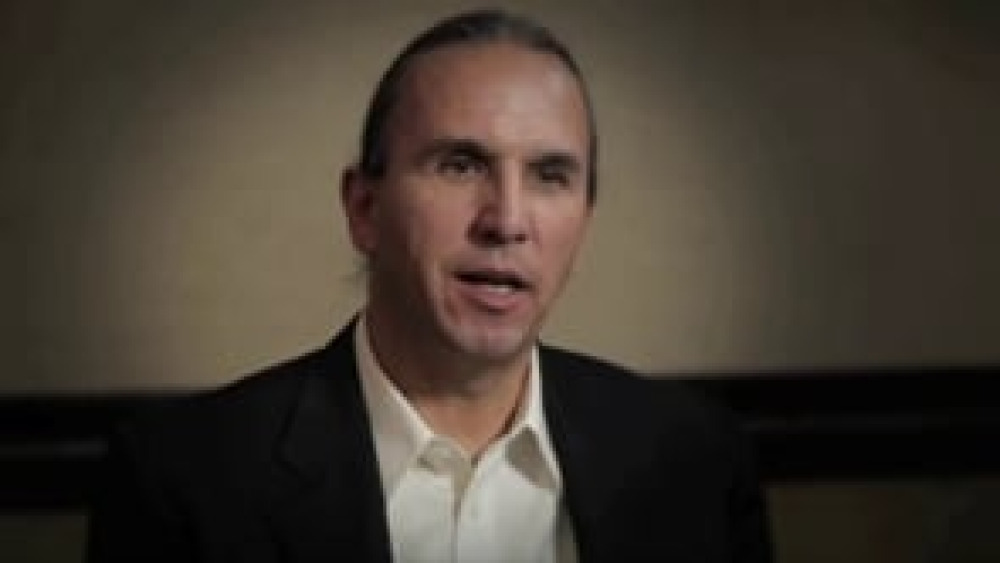
Terry Janis: The White Earth Nation Constitutional Reform Process
In this lively and far-reaching discussion with NNI's Ian Record, Terry Janis (Oglala Lakota), former project manager of the White Earth Nation Constitution Reform Project, provides an overview of the citizen education and engagement campaign that preceded White Earth's historic vote to ratify a…
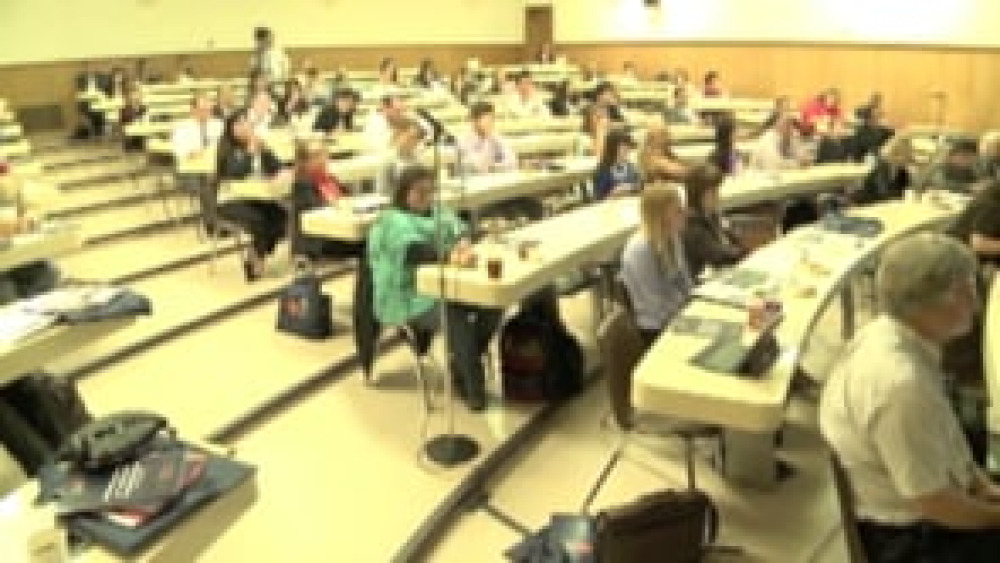
Good Native Governance Plenary 1: Innovations in Law
UCLA School of Law "Good Native Governance" conference presenters, panelists and participants Carole E. Goldberg, Matthew L.M. Fletcher, and Kristen A. Carpenter discuss law and the issues that Native nations deal with. Goldberg explains the recommendations of the Indian Law and Order Commission…
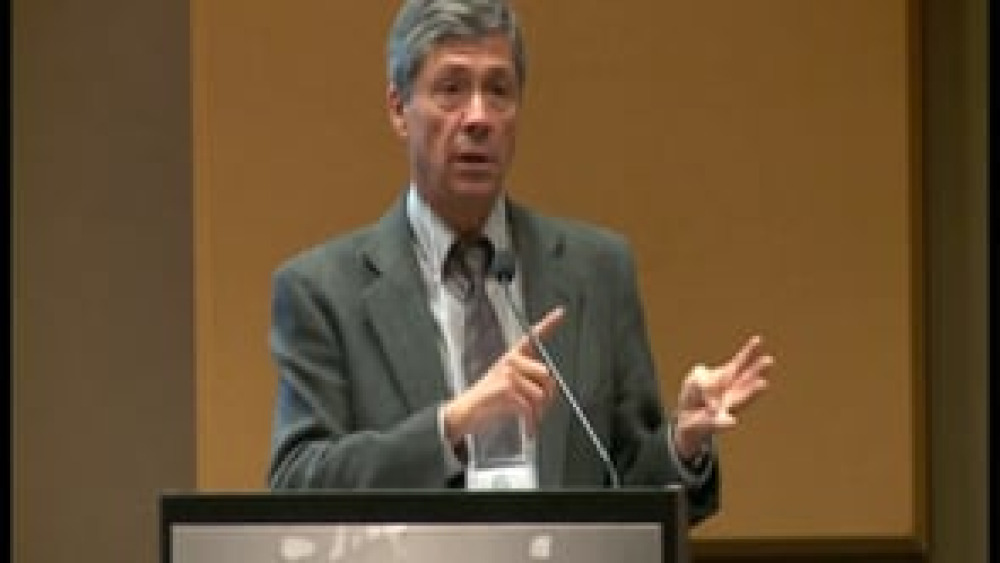
Robert Miller: Creating Sustainable Reservation Economies
In this informative and lively talk, law professor Robert Miller discusses the importance of Native nations building diversified, sustainable reservation economies through the cultivation and support of small businesses owned by their citizens, and offers some strategies for how Native nations can…
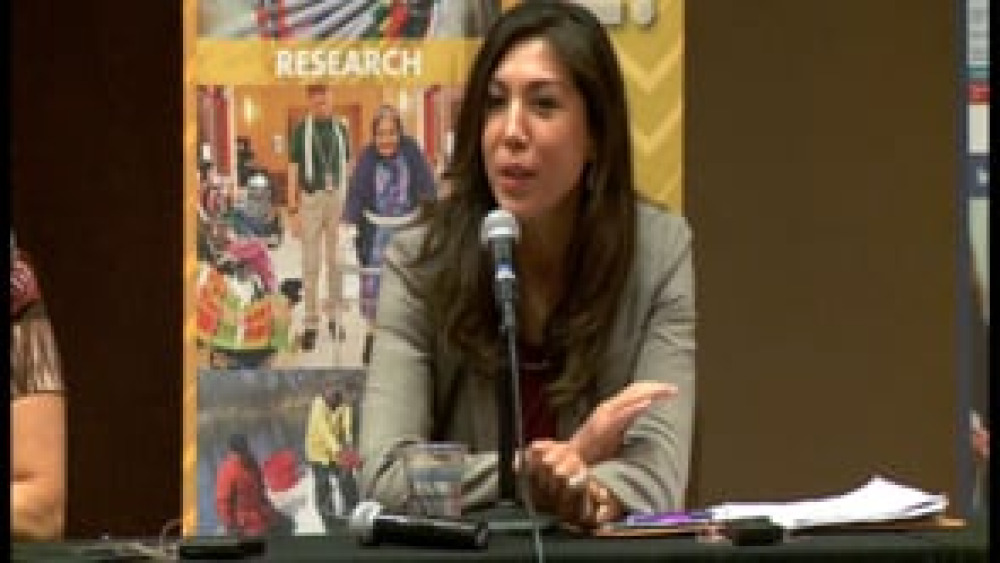
Paulette Jordan: Engaging the Nation's Citizens and Effecting Change: The Coeur d'Alene Story
Paulette Jordan, citizen and council member of the Coeur d'Alene Tribe in Idaho, discusses the importance of Native nation leaders being grounded in their culture and consulting the keepers of the culture (their elders) so that they approach the leadership challenges they face with the proper…
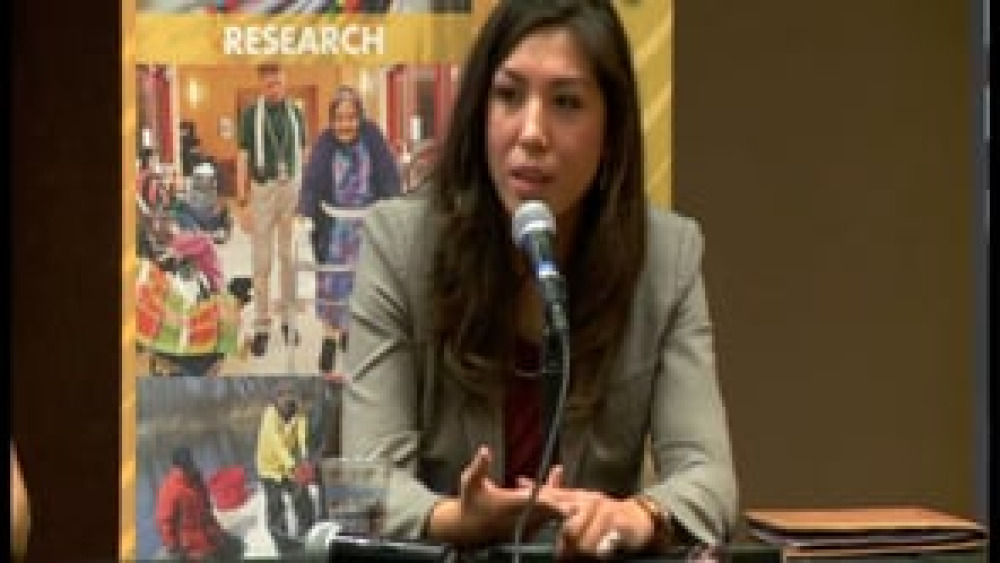
Paulette Jordan and Arlene Templer: Engaging the Nation's Citizens and Effecting Change (Q&A)
Paulette Jordan and Arlene Templer field questions from the audience, offering more details about how they mobilized their fellow tribal citizens to buy into the community development initiatives they were advancing.
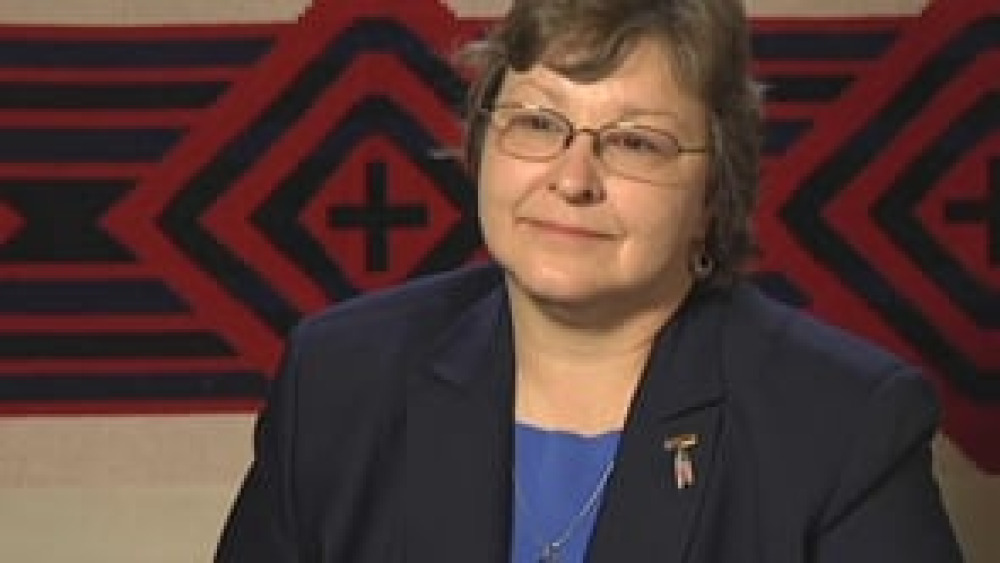
Karen Diver: Nation Building Through the Cultivation of Capable People and Governing Institutions
In this informative interview with NNI's Ian Record, Chairwoman Karen Diver of the Fond du Lac Band of Lake Superior Chippewa discusses the critical importance of Native nations' systematic development of its governing institutions and human resource ability to their ability to exercise sovereignty…
